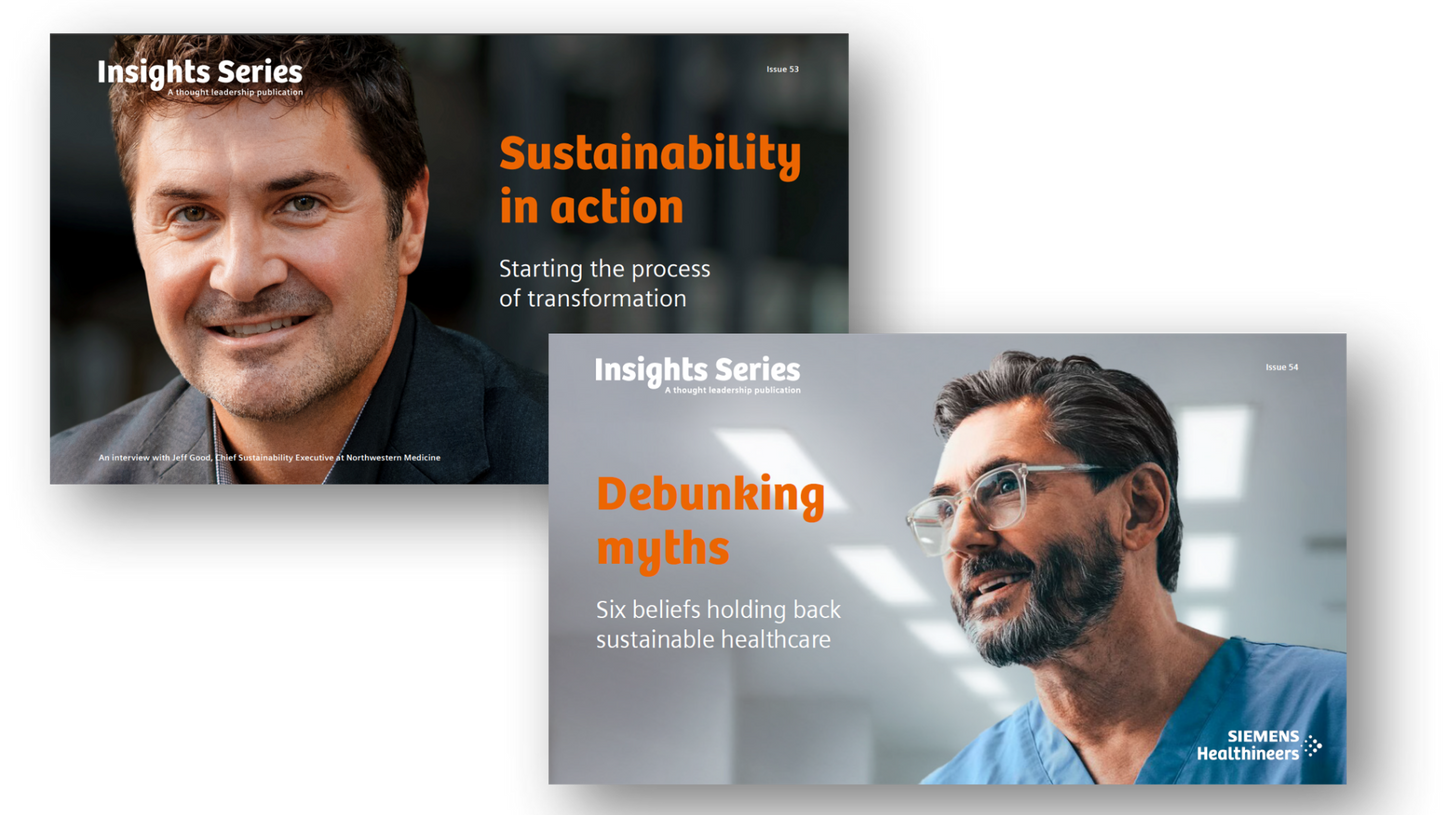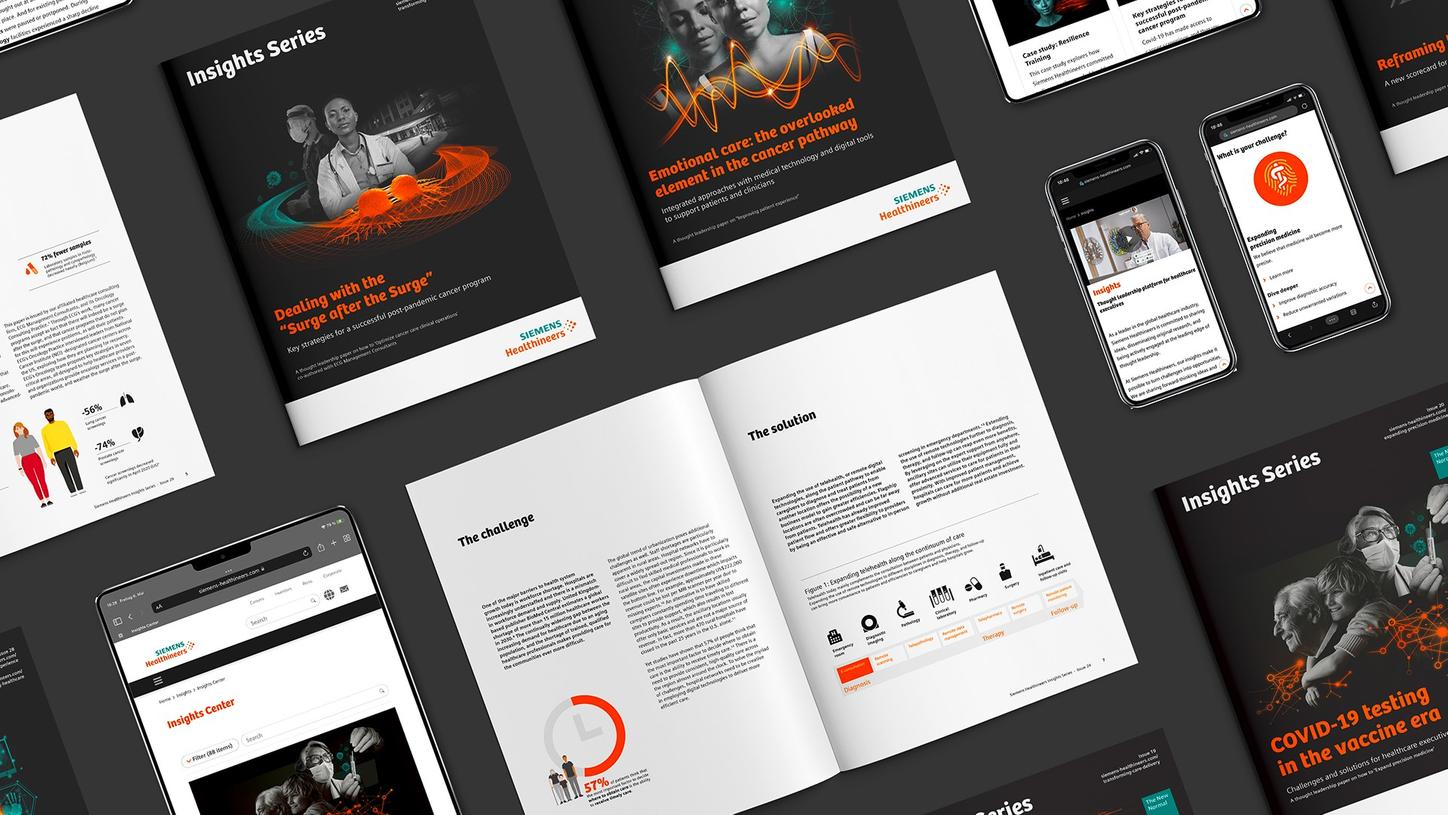- Home
- Insights
Executive InsightsThought leadership platform for healthcare executives
At Siemens Healthineers, we pioneer breakthroughs in healthcare. For everyone. Everywhere. Sustainably. By constantly bringing breakthrough innovations to market, we enable healthcare professionals in innovating personalized care, achieving operational excellence, and transforming the system of care.
What is your challenge?
Innovating personalized care
We enable you to promote health for each patient by digitally connecting precise diagnoses with precise treatments.
Achieving operational excellence
We enable your care teams to focus on value creation by augmenting their capabilities and simplifying their work, sustainably.
Transforming the system of care
We enable you to build a smart care delivery model that provides equitable access to care, no matter where patients are.

Read our papers on these challenges
and explore inspiring thoughts and ways to tackle them
Insights Series
The Siemens Healthineers Insights Series is our preeminent thought leadership platform, drawing on the knowledge and experience of some of the world’s most respected healthcare leaders and innovators. The Series explores emerging issues and provides you with practical solutions to today’s most pressing healthcare challenges.

NEW Issues
Read the two new papers on environmental sustainability:
Find Insights Series via topic:

Innovating personalized care
We enable you to promote health for each patient by digitally connecting precise diagnoses with precise treatments.

Achieving operational excellence
We enable your care teams to focus on value creation by augmenting their capabilities and simplifying their work, sustainably.

Transforming the system of care
We enable you to build a smart care delivery model that provides equitable access to care, no matter where patients are.

Oncology
These papers present strategies and look at ideas how cancer care can be improved in the future to realize the vision of a world without fear of cancer.
Insights Center
Visit our Insights Center and find: articles with directly applicable approaches
white papers | expert voices | studies | surveys
Events

Stay tuned with regular executive insights
Subscribe to discover thought-provoking ideas, gain practical solutions to
today’s most pressing healthcare challenges, and receive our Insights Series.
Get our latest Insights Series papers
and more
Did this information help you?
Thank you.
Share this page:





